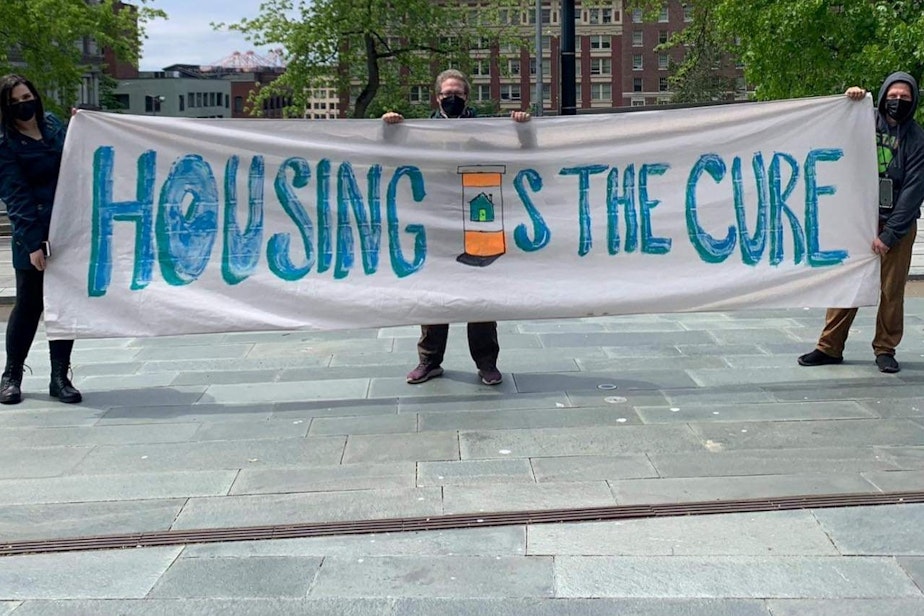Is social housing the answer to Seattle’s affordable housing woes?

A new initiative would establish social housing in Seattle. The plan would create a public developer that would own and manage residential buildings, with the goal of making those housing units permanently affordable. At the high-end, a single person earning around $97,000 a year could qualify, and everyone who qualifies would pay no more than 30% of their income in rent.
The coalition behind the measure is House Our Neighbors. KUOW’s Kim Malcolm talked to co-chair Tiffani McCoy about the initiative and the big differences between social housing and the public housing models that already exist in the U.S.
This interview has been edited for clarity.
Tiffani McCoy: We see social housing as complementing current affordable housing strategies at the city and the state level. I would say the key difference between social housing and current affordable housing models is that social housing is not going to be restricted by federal financing. Also, this social housing that we're putting forward is really renter-led.
Kim Malcolm: Who would qualify to live in this kind of housing?
Folks who have a household income between 0% to 120% of the area median income (AMI) will be eligible to qualify for the social housing units. Whereas traditional affordable housing is usually between 60% to 80% AMI, if you're lucky.
We have a very simple process. Let's say you come in at 120%, and you make more in your lifetime. That's great. You stay in the housing, and we make sure that that income that you're bringing in goes to subsidize someone that's making less and helping cover their rental costs.
Sponsored
You've sketched out the parameters of how this would work. Why do you think it's important that we have it?
Every year that the city of Seattle doesn't address the affordable housing crisis at scale is another year where we know for sure that more folks are going to be rent-burdened, and more folks are going to be on the brink of eviction, and we know for a fact that more people enter homelessness. These are not disputed facts. When rent goes up, and wages do not go up, more people enter homelessness. It's about halting that pipeline into homelessness.
It's also about really interrupting the displacement of our Black, brown, and low-income communities in the city of Seattle who are being priced out and having to drive 45 minutes to an hour back into Seattle for their job, and then go home at night to be with their families.
How big of a solution do you think this approach could be?
I know that politically it would be best for me to say that this is going to change the entire landscape, and this is the solution to all of our ills. I am not going to do that. The reality is this could be an enormous game-changer if we have the political will, if we want to fund this mechanism, and if we want to prioritize public land and public buildings that are up for sale to go under this public developer.
Sponsored
If we keep relying on the affordable housing mechanisms that are really heavily dictated by the federal government, then we're going to stay where we are. The status quo will reign.
If this ballot initiative makes it to November, and voters say yes, how is it going to be paid for?
We're going to be working with local council members and those at the state level to find dedicated revenue, but we wanted to put forward the vision and the structure of social housing as a non-market intervention to solve the housing crisis.
Virtually every elected official, regardless of political background, says that affordable housing is one of our most important needs. We're going to put the onus on them to prove that by funding a new model that could deeply address the housing affordability crisis.
In order to qualify for the ballot, the coalition will need nearly 27,000 signatures.
Sponsored
Listen to the interview by clicking the play button above.





